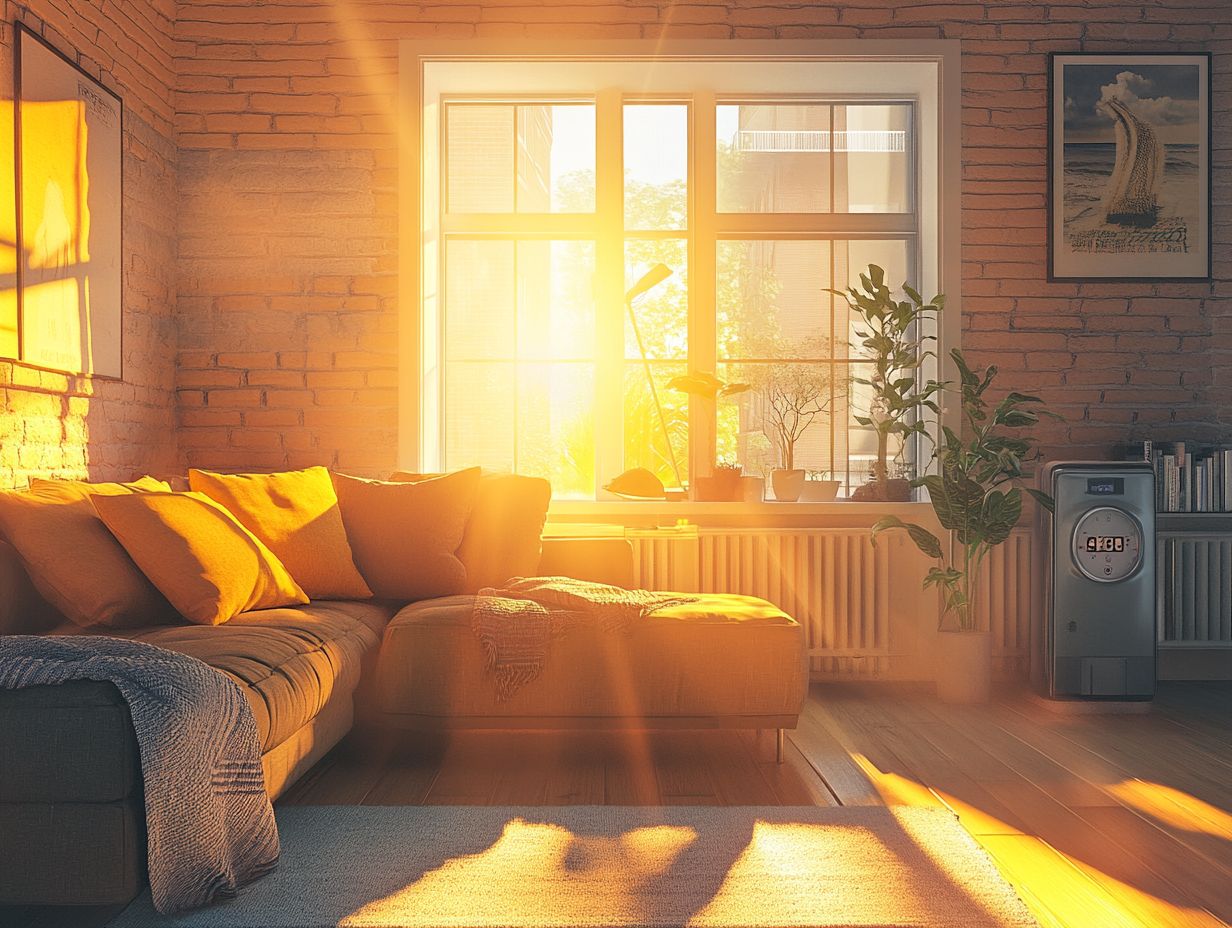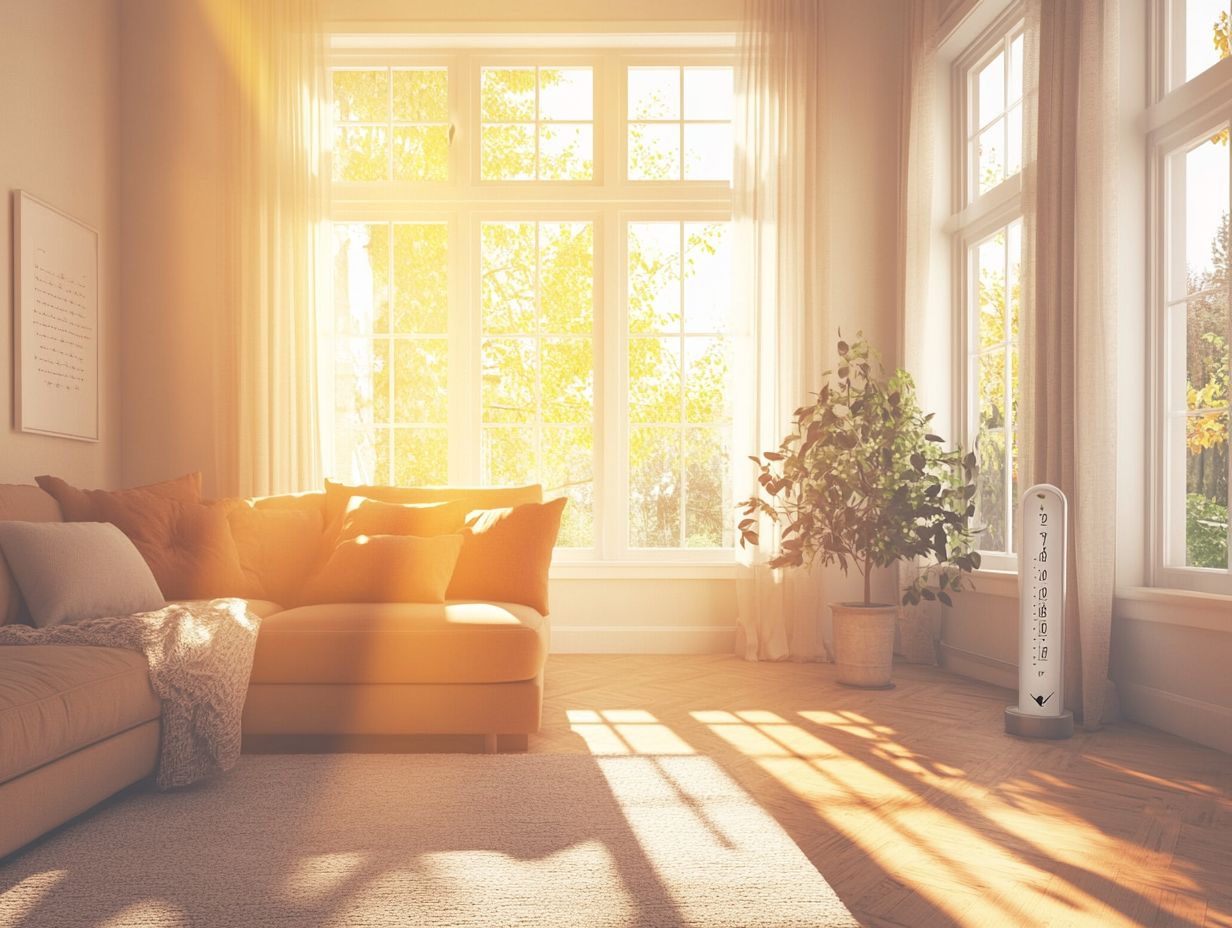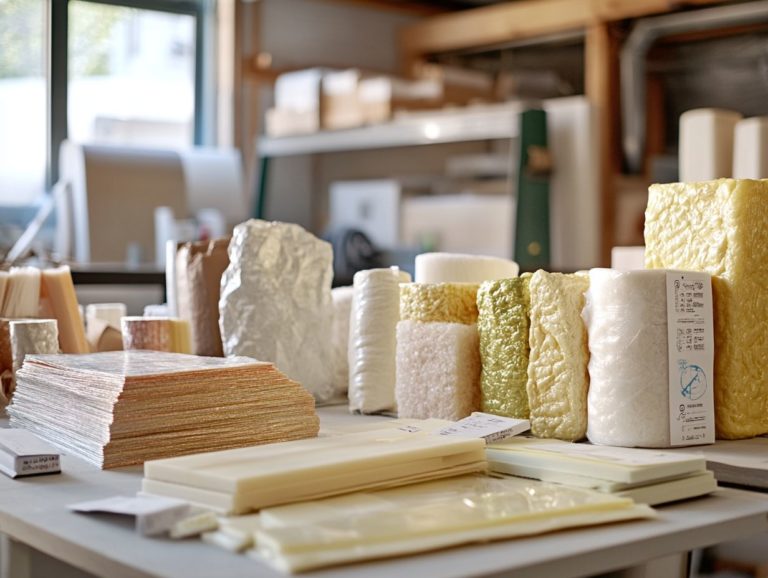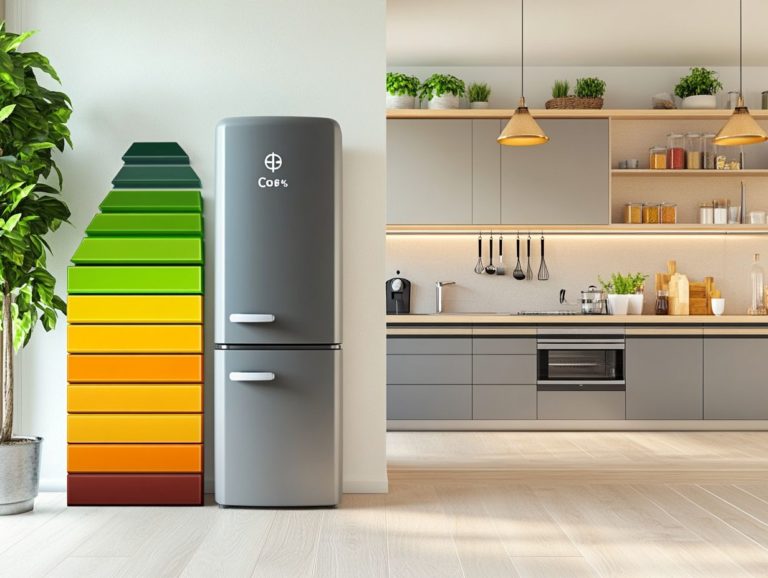What are the Best Practices for Home Insulation?
Home insulation is instrumental in crafting a comfortable and energy-efficient living environment.
Whether you’re embarking on building a new home or making upgrades to your existing space, grasping the diverse types of insulation and their respective benefits is essential.
The right insulation goes beyond mere comfort; it enhances energy efficiency, reduces costs, and improves indoor air quality, transforming your home into a sanctuary.
Get ready to explore the essentials of home insulation, covering everything from materials and installation best practices to maintenance tips, ensuring your space remains a cozy retreat throughout the year.
Contents
- Key Takeaways:
- Understanding Home Insulation
- Benefits of Proper Home Insulation
- Types of Home Insulation
- Factors to Consider When Choosing Home Insulation
- Best Practices for Installing Home Insulation
- Maintaining and Upgrading Home Insulation
- Frequently Asked Questions
- What are the Best Practices for Home Insulation?
- What s the best type of insulation for your home?
- How much insulation do I need to properly insulate my home?
- What are some common mistakes to avoid when insulating a home?
- How often should home insulation be checked and maintained?
- Can I install home insulation myself, or should I hire a professional?
Key Takeaways:

- Proper home insulation leads to energy efficiency, cost savings, and improved comfort and indoor air quality.
- Factors such as climate, location, budget, and longevity should be considered when choosing the best home insulation.
- Regular maintenance and upgrading of home insulation can help prevent issues and ensure optimal performance.
Understanding Home Insulation
Understanding home insulation is essential for homeowners seeking to enhance energy efficiency, ensure comfort, and meet building regulations. Proper insulation serves as an air barrier, especially in areas like crawl spaces and attics, minimizing air leakage and addressing energy-robbing defects.
This not only helps lower your energy bills but also maintains optimal indoor air quality. You can choose from many insulation options, including spray foam, fiberglass, and even cellulose made from recycled materials selecting the right type can profoundly influence your home’s performance.
What is Home Insulation?
Home insulation encompasses the materials and techniques you employ to minimize heat transfer and enhance energy efficiency in your residence. This is vital for creating a comfortable indoor climate and can lead to significant reductions in your energy bills.
Among the various insulation options, spray foam stands out for its exceptional air sealing capabilities, while fiberglass is a favorite due to its affordability and effectiveness. If you’re leaning toward an environmentally friendly choice, cellulose crafted from recycled paper delivers commendable thermal performance.
It’s important to note that each type of insulation carries different R-Value ratings, which measure how well insulation resists heat flow; the higher the R-Value, the better the insulating properties. Additionally, never underestimate the importance of air sealing. It plays a crucial role in minimizing air leaks, ensuring that the thermal efficiency of your insulation is fully realized, keeping your home consistently cozy throughout the seasons.
Benefits of Proper Home Insulation
Proper home insulation offers a wealth of advantages, from improved energy efficiency to considerable savings on your energy bills. You’ll experience increased comfort in your living space, as it effectively reduces drafts and regulates indoor air movement.
High-quality insulation tackles moisture issues, safeguarding your home from mold growth and potential structural problems.
Energy Efficiency and Cost Savings
Energy efficiency through proper insulation methods can lead to dramatic reductions in your energy bills.
By upgrading existing insulation that seals gaps and insulates walls, attics, and basements, you can significantly reduce air leakage.
For example, spray foam insulation is well-known for its superior air sealing capabilities, while fiberglass batt insulation remains a popular choice because it’s cost-effective.
According to the U.S. Department of Energy, upgrading to high-performance insulation can save you between 10-50% on heating and cooling costs. Insulation plays a vital role in your home’s comfort and your wallet’s health!
Comfort and Indoor Air Quality

Proper insulation does more than just keep your home cozy; it s essential for maintaining excellent indoor air quality.
By effectively regulating indoor temperatures, it minimizes pesky drafts and creates a more pleasant living environment.
This consistency isn t merely about warding off the chill; it also tackles potential moisture issues that could lead to mold growth. When humidity levels are kept in check, the risk of such problems decreases, fostering a healthier atmosphere.
Adequate insulation also acts as a sound barrier, helping to mute unwanted noise and creating a serene ambiance that enhances your overall relaxation and well-being.
Types of Home Insulation
You have a variety of home insulation options at your disposal, including fiberglass insulation, cellulose insulation, and various forms of spray foam insulation. Each presents its own unique benefits and characteristics tailored to meet your specific needs as a homeowner.
Overview of Common Materials
Common materials for insulation include fiberglass, cellulose made from newsprint or denim, and various forms of spray foam insulation. Each of these options brings unique properties tailored to different application needs.
Fiberglass insulation is renowned for its excellent thermal performance and fire resistance, making it a popular choice for both residential and commercial buildings.
Its lightweight nature simplifies installation, but be cautious if not handled properly, it can release irritating particles into the air.
On the sustainable side, cellulose insulation, crafted from recycled paper products, is celebrated for its environmental safety. It provides effective soundproofing and thermal barriers, though it does have a vulnerability to moisture, which necessitates proper treatment to mitigate risks.
For top-notch air sealing, choose spray foam insulation. It expands to fill cracks and gaps, leading to substantial energy savings! However, its chemical makeup can raise concerns about off-gassing, so it s crucial to choose wisely to ensure a healthy indoor environment.
Factors to Consider When Choosing Home Insulation
When you re choosing home insulation, it s essential to consider a range of factors. Think about your climate and location, as these will significantly influence your selection.
Keep your budget in mind; it s crucial to balance cost with quality. Don t overlook the longevity and R-Value, which measures insulation effectiveness, of the insulation materials, as these aspects determine the effectiveness and durability of your choice.
Wondering how much you can save? Insulating your home could cut energy costs significantly!
Ready to enhance your home’s energy efficiency? Let’s explore the best options for you!
Climate and Location
The climate and location of your home significantly influence the most suitable type of insulation for your needs.
In regions where temperatures swing to extremes whether you re dealing with sweltering summers or biting winters selecting the right insulation becomes essential for optimizing energy efficiency. For example, if you live in a high-humidity area, you might want to opt for moisture-resistant materials. These materials help prevent mold and keep your home dry. On the other hand, colder climates often demand higher R-values to effectively retain heat. R-values measure how well insulation can resist heat flow. Higher R-values indicate better insulation.
Local building codes frequently specify insulation requirements that vary according to local weather conditions, including the International Energy Conservation Code. By following these regulations, you not only ensure compliance with legal standards but also enhance your comfort and lower your energy costs, paving the way for a more sustainable living environment overall.
Budget and Longevity

Budget constraints and the expected longevity of insulation materials play a big role in your decisions when making insulation choices.
Selecting the right type of insulation affects your initial costs. It also impacts your utility bills in the long run. For instance, while fiberglass insulation may seem like a more affordable option upfront, with a typical R-Value of around 2.9 to 4.3 per inch, it often shows signs of wear after about 20 years. To learn more about your options, check out what is the best insulation for homes.
On the other hand, spray foam insulation, though pricier to install, boasts a higher R-Value ranging from 6 to 7 per inch and can last up to 30 years. This translates into energy savings that can offset that higher initial cost. By investing in superior insulation types, you can enjoy lower heating and cooling costs, ultimately making it a savvy financial decision over the lifespan of your home. For more options, consider exploring 5 effective home insulation techniques.
Best Practices for Installing Home Insulation
Installing home insulation effectively demands a commitment to best practices that guarantee optimal performance and safety. By following these guidelines, you can enhance the energy efficiency of your home while ensuring a secure and comfortable environment.
Proper Techniques and Safety Measures
Proper installation techniques and safety measures are vital for ensuring both the effectiveness and longevity of your home insulation.
Different insulation materials like fiberglass, foam, and cellulose come with their own specific installation requirements that you must follow for peak performance. For example, when handling fiberglass, it’s essential to don protective gear such as gloves and masks to avoid irritation from those tiny particles. Exploring DIY insulation hacks for every home can also enhance your insulation efforts.
Ensure proper air sealing around windows, doors, and joints to minimize drafts and heat loss. By meticulously sealing these gaps, you not only enhance the thermal performance of the insulation but also improve indoor air quality. For more comprehensive insights, refer to insulating your home: best practices, making this a crucial component of any insulation project.
Maintaining and Upgrading Home Insulation
Regular maintenance and timely upgrades of your home insulation are vital for saving money and energy while ensuring its long-term performance. Keeping your insulation in top condition allows you to reap the benefits of reduced energy costs and a comfortable living environment year-round.
Regular checks can save you money and keep your home comfy. Schedule an inspection today!
Signs of Insulation Issues and When to Upgrade
As a homeowner, it s essential to recognize common signs of insulation issues, such as rising energy bills, persistent drafts, and moisture problems.
These indicators can appear in various forms, often pointing to poor insulation or damaged materials. For instance, if certain rooms are consistently colder in winter or warmer in summer than the rest of your home, it s a clear sign that your insulation might not be effective.
Spotting mold or mildew growth in corners or on walls can also signal trapped moisture, which typically results from insulation that fails to prevent water droplets from forming when warm, humid air meets a cold surface. When these symptoms persist, consider upgrading your insulation for better comfort and savings especially if a thorough evaluation reveals areas lacking sufficient insulation or existing materials that have seen better days.
Frequently Asked Questions

What are the Best Practices for Home Insulation?
To ensure your home stays cozy and energy-efficient, follow these best practices for insulation: choose the right materials, install them correctly, and maintain them regularly.
What s the best type of insulation for your home?
The best type of insulation for your home depends on factors like climate, budget, and personal preferences. Common types include fiberglass, cellulose, and spray foam. It s recommended to consult with a professional to determine the best type for your specific needs.
How much insulation do I need to properly insulate my home?
The amount of insulation required will vary based on factors such as climate, type of insulation, and the age and size of your home. Consulting with an insulation professional will help determine the appropriate amount for optimal energy efficiency.
What are some common mistakes to avoid when insulating a home?
Avoid common mistakes like not sealing air leaks properly, using the wrong insulation for specific areas or climates, and failing to install insulation to recommended thickness levels. It s important to hire a professional or thoroughly research proper insulation techniques to prevent these errors.
How often should home insulation be checked and maintained?
Check and maintain home insulation regularly to ensure it works effectively. It s recommended to have a professional inspection every few years and to visually inspect for signs of damage or wear. Regular cleaning and upkeep can also prolong the lifespan of your insulation.
Can I install home insulation myself, or should I hire a professional?
While some insulation projects are doable by homeowners, it s generally better to hire a professional for optimal results. Insulation experts have the knowledge and experience to assess and install insulation correctly and efficiently.
Ready to improve your home’s insulation? Contact a professional today!






